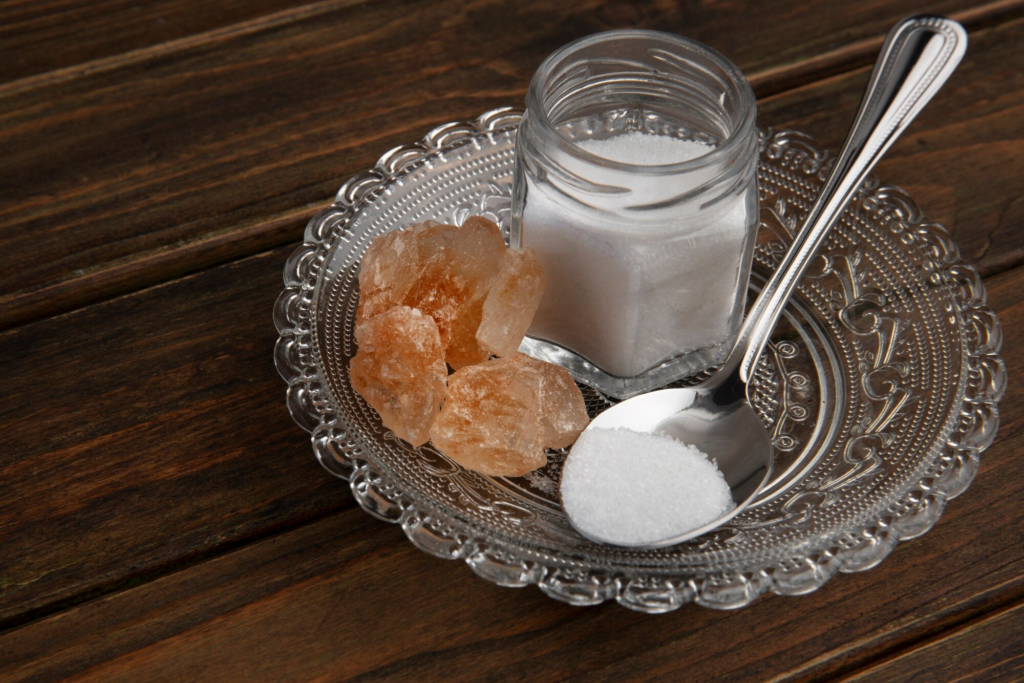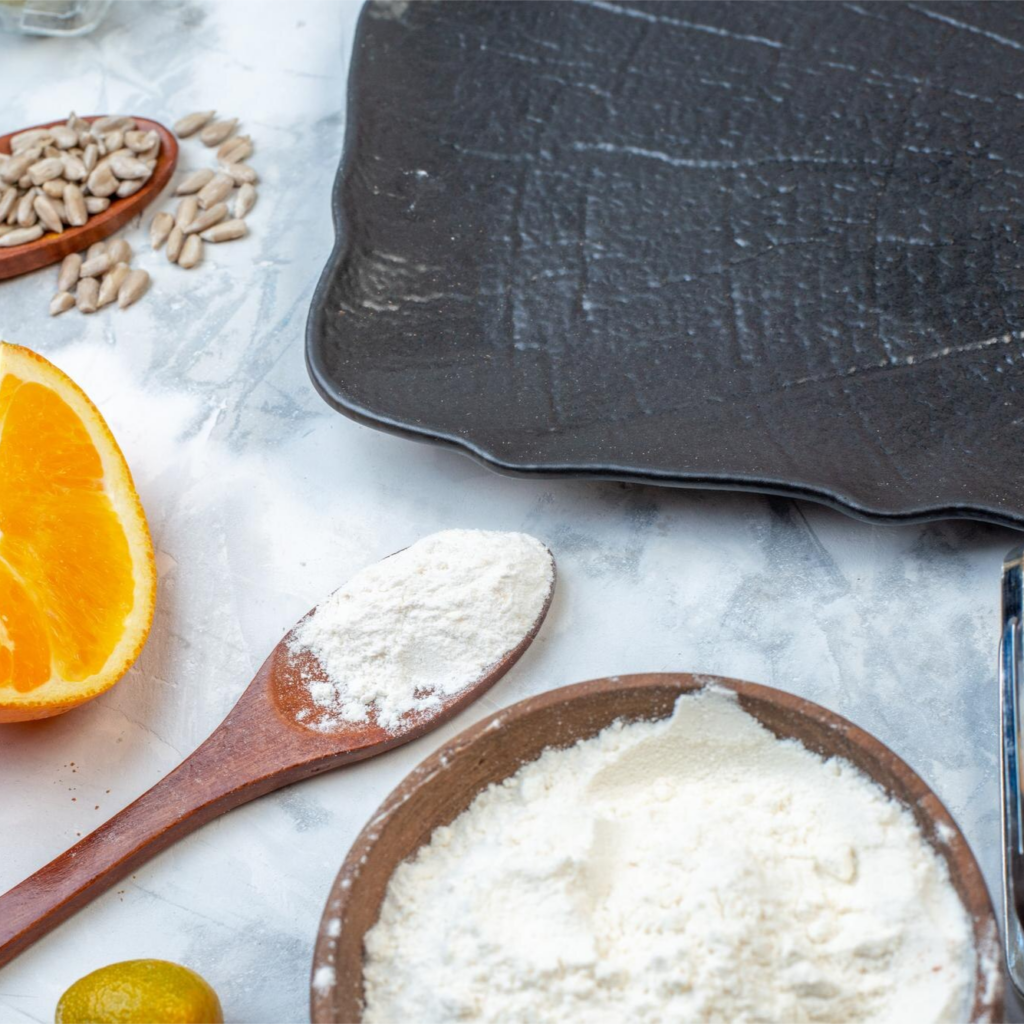In the age of social media health trends, it’s easy to get swept up in claims that sound too good to be true. One such trend that’s recently made waves on TikTok is the idea that baking soda—a common household ingredient—can be beneficial for kidney and liver health.

Videos showcasing users mixing a spoonful of baking soda in water and claiming it “cleanses” the kidneys or “detoxifies” the liver have gone viral, sparking curiosity and concern alike.
But how much truth is there to these claims? Let’s dive deep into the science and separate fact from fiction.
Understanding the Role of Baking Soda in the Body
Baking soda, also known as sodium bicarbonate, is an alkaline substance that’s commonly used in baking, cleaning, and even some medical treatments.
When dissolved in water, it forms a mildly alkaline solution that can neutralize acids. In the medical world, sodium bicarbonate is sometimes prescribed to patients with certain conditions like metabolic acidosis, or to temporarily relieve acid reflux and indigestion.
This chemical’s alkalinity is the reason behind the claims of its potential to help with kidney and liver issues.
But while baking soda may have a role in certain controlled health applications, using it casually or excessively without medical supervision can pose risks—especially when it comes to organs as vital as the kidneys and liver.
Baking Soda and Kidney Health
The kidneys are responsible for filtering waste products from the blood, balancing fluids, and maintaining a healthy pH level in the body.
In people with chronic kidney disease (CKD), the kidneys struggle to maintain acid-base balance, often resulting in a condition known as metabolic acidosis.
This is where sodium bicarbonate has been shown to be helpful—under medical supervision. Some studies have found that prescribed doses of baking soda can slow the progression of kidney disease in patients with CKD by helping to neutralize excess acid in the blood.
One study published in the Journal of the American Society of Nephrology found that patients with advanced CKD who took sodium bicarbonate supplements saw a slower decline in kidney function compared to those who didn’t.
However, this doesn’t mean everyone should start taking baking soda as a preventive measure for kidney health. The dosage and application are critical, and the treatment is specifically meant for individuals with an identified imbalance.
Can Baking Soda Cleanse or Detox the Liver?
Unlike the kidneys, the liver is not primarily involved in managing the body’s pH. Instead, it processes toxins, metabolizes drugs, and plays a critical role in digestion and energy storage.
The idea that baking soda can “cleanse” or “detox” the liver is not backed by scientific evidence. In fact, the liver is self-cleansing by nature—it’s built to filter toxins and regenerate itself efficiently, as long as it’s not overwhelmed by excessive alcohol, poor diet, or toxins.
There is currently no medical research to support the notion that ingesting baking soda can enhance liver function or cleanse it in any meaningful way.
While baking soda’s alkaline properties may benefit certain bodily functions, the liver’s detoxification mechanisms are complex and are not dependent on alkalinity.
Claims of “detox” are often loosely thrown around in wellness circles, but true detoxification happens through proper hydration, a healthy diet rich in antioxidants, exercise, and avoiding harmful substances—not quick fixes.
Risks of Overusing Baking Soda
The idea of using baking soda as a regular health tonic may seem harmless, but it can be dangerous if overused. One of the most concerning risks is sodium overload.
One teaspoon of baking soda contains over 1,200 mg of sodium—more than half the recommended daily limit for most adults. Consuming large amounts regularly can lead to increased blood pressure, fluid retention, and electrolyte imbalances.
Moreover, there have been cases reported in medical literature where excessive consumption of baking soda led to serious complications, including metabolic alkalosis—a condition where the blood becomes too alkaline.
Symptoms include muscle twitching, hand tremors, nausea, vomiting, and in severe cases, confusion or even seizures. Those with heart conditions, kidney disease, or high blood pressure should be particularly cautious.
What Does TikTok Get Right—And What It Gets Wrong
TikTok can be a great platform for spreading awareness about lesser-known remedies, but it can also oversimplify or misrepresent complex health topics.
While it’s true that baking soda has some applications in managing certain medical conditions, it’s misleading to generalize that it’s good for everyone’s kidneys and liver.
Many TikTok users promoting baking soda water as a “cleanse” fail to mention the risks, necessary medical supervision, or specific contexts in which baking soda might actually be beneficial.
Worse, some videos promote daily intake of baking soda water without any guidance on safe dosing, which can be extremely dangerous.
On the bright side, trends like these do get people thinking more critically about their health, and spark curiosity about how natural substances interact with the body. That curiosity is a good thing—as long as it leads people to credible information and not just viral health hacks.
Safe Ways to Support Your Kidney and Liver Health

If you’re looking to genuinely improve your kidney or liver health, there are far safer and more evidence-based approaches than using baking soda.
For kidney health, staying hydrated is key. Drinking plenty of water helps the kidneys filter out waste efficiently. Reducing sodium, avoiding over-the-counter medications that are hard on the kidneys (like NSAIDs), and maintaining a healthy blood pressure can also make a significant difference.
For liver health, limit alcohol intake, avoid processed foods high in saturated fat, and focus on foods rich in antioxidants—like leafy greens, berries, citrus fruits, and cruciferous vegetables (broccoli, cabbage, etc.).
Supplements like milk thistle or turmeric are also widely studied for liver support, although they too should be taken under the advice of a healthcare provider.
Exercise, stress management, and regular medical checkups are also crucial in preventing disease before it starts.
When to Talk to Your Doctor About Baking Soda Use
If you have a medical condition like chronic kidney disease or recurring acid reflux, and you’ve heard that baking soda might help, talk to your doctor before trying anything new.
In some cases, your doctor may prescribe sodium bicarbonate as part of your treatment plan. In others, they may advise against it due to underlying risks or medications you’re taking.
It’s important to remember that just because something is “natural” doesn’t mean it’s harmless or universally beneficial. Your doctor can help you understand whether a home remedy like baking soda fits safely into your health plan—or whether there are better alternatives.
Final Thoughts: Is Baking Soda a Miracle Fix or Misunderstood Remedy?
So, is baking soda good for your kidneys and liver? The answer depends on the context.
In controlled, medically supervised scenarios, sodium bicarbonate may benefit certain individuals—particularly those with metabolic acidosis caused by chronic kidney disease.
But for the average person with healthy kidneys and liver, baking soda is not a miracle remedy. It doesn’t “cleanse” your liver, and when consumed inappropriately, it can be harmful to your kidneys and overall health.
TikTok health trends are great at sparking conversation, but they shouldn’t replace science-backed advice from medical professionals.
If you’re serious about supporting your organs and optimizing your health, skip the hype and focus on balanced nutrition, exercise, hydration, and regular doctor visits.
And if you’re ever in doubt—especially when it comes to viral health hacks—it’s always best to dig deeper and consult trusted health sources before jumping on the trend train.